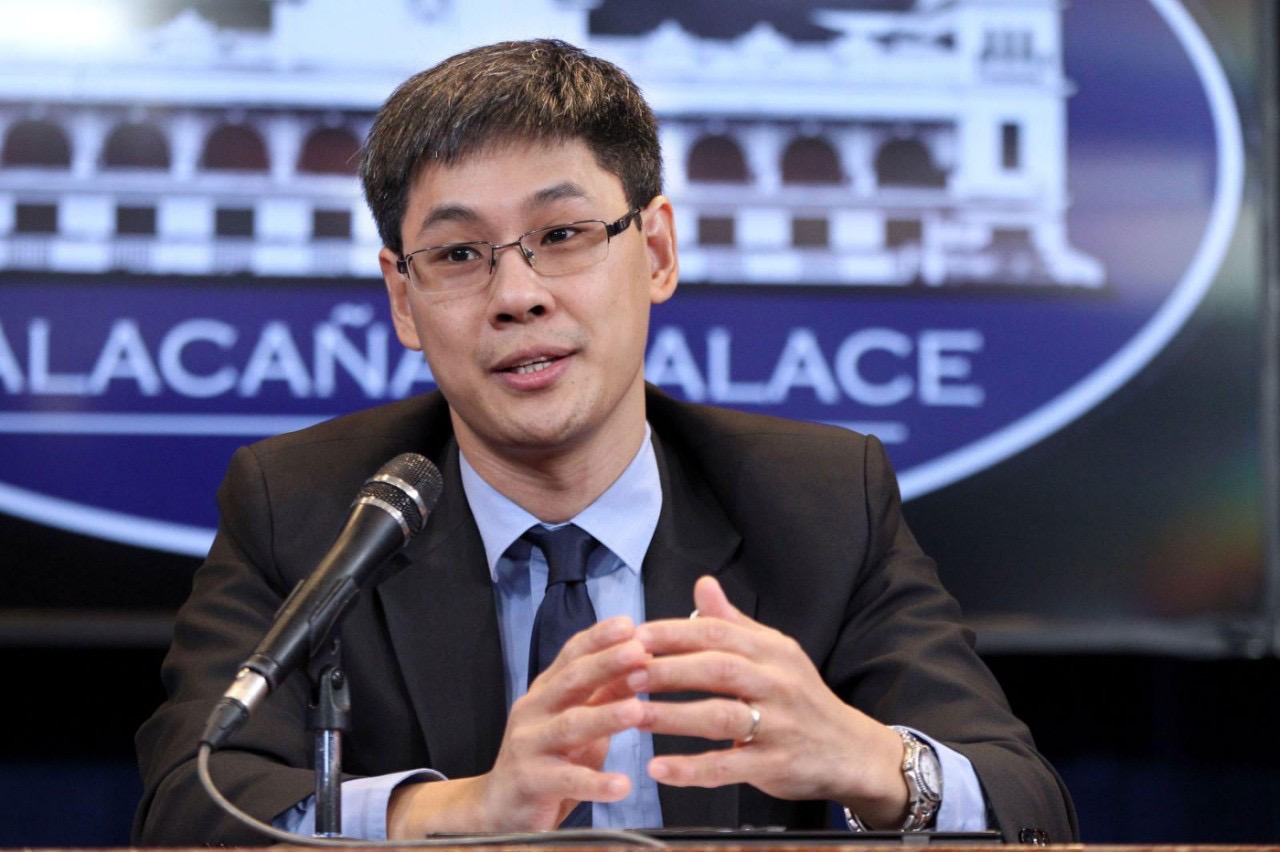Chua: COVID-19 as endemic mindset to sustain PH economic recovery

FILE PHOTO: Socioeconomic Planning Secretary and Neda chief Karl Kendrick Chua
MANILA, Philippines — The country’s chief economist has urged to revisit how the government monitored COVID-19 cases by highlighting only severe infections and measuring deaths as a share of the population so that more Filipinos won’t be scared to go out.
Speaking to Asian Institute of Management (AIM) alumni last Wednesday night, Socioeconomic Planning Secretary Karl Kendrick Chua pitched a 10-point policy, which he said could accelerate and sustain economic recovery despite new coronavirus variants like Omicron cropping up.
“The reality today is the virus is not going to go away easily. And we will have to live with it for a longer period of time, similar to, maybe, the flu. And to live with this, we have to change our metrics, focus on vaccination, and focus on minimizing the severe and critical cases, and also deaths,” said Chua, who heads the state planning agency National Economic and Development Authority (Neda).
Chua said the key to living with COVID-19 will be to consider it as “endemic,” similar to what Singapore and Portugal have done. “The UK and USA have made pronouncements about the virus not going to go away; Thailand and South Korea have focused on living with the virus, so if we proceed with this idea of making the paradigm about less of the pandemic and more of the endemic part, then we are not alone.”
Chua noted that countries that considered COVID-19 as endemic already made strides in returning mobility and public transport, as well as reopening schools and economic sectors like travel and tourism. “This is the direction that the Philippines should proceed with haste if we want to recover faster,” the Neda chief said.
As such, included in Chua’s proposed 10-point policy was changing the metrics currently being used by the government whenever it made a decision in responding to the health challenges posed by COVID-19.
At present, decision-making was based on the cumulative number of cases, total deaths, as well as the overall vaccination rate.
Chua proposed limiting monitoring to total severe or critical cases who were hospitalized due to COVID-19; the case fatality ratio or the share of deaths to the number of infections; and the vaccination rate.
“The benefit of moving to this metric is to reduce the need to raise the alert levels [which] scare the people when cases go up. It will facilitate a shift in the mindset of the people to live with the virus,” Chua said.
“If there are 20,000 cases but if 95 percent are mild, then we may be reacting too much,” he added.
The metrics proposed by Chua would also emphasize the positives of getting vaccinated, especially among those who have yet to get their jabs, he said. Global research had shown that vaccines minimized deaths among those infected by COVID-19.
Also part of Chua’s proposed 10-point strategy was ramping up mass vaccination to a larger chunk of the population, including children.
“Many countries are already moving to vaccinate younger children, so there is, I think, no reason why the Philippines should not follow suit the moment the approvals are granted, and, in some cases, the moment the suppliers have applied for an emergency use authorization,” he said.
Chua’s presentation noted that from record-high levels of over 26,000 new daily infections in mid-September, cases fell to less than 1,000 per day by mid-November after the vaccination program was accelerated.
The third leg of Chua’s 10-point policy proposal entailed ensuring adequate healthcare capacity at all times. “If we are moving to this endemic mindset of prioritizing or focusing only on the critical and severe [cases], then the idea here is to improve our healthcare capacity.”
To continue economic recovery, Chua said reopening of productive sectors plus expanding public transport capacity would “move people, not strand them” by maintaining the current targeted and localized alert level system.
Chua also pushed to reopen face-to-face classes, subject to minimum health standards; remove most local-level restrictions so that vaccinated local tourists can travel across the archipelago; also further relax requirements for returning overseas Filipinos as well as foreigners visiting here; accelerating digitalization; building societal resilience against any future pandemic; and enacting a pandemic flexibility bill.
Chua said the proposed pandemic budget and finance flexibility bill will be similar and yet would also complement and fill the gaps of the National Disaster Risk Reduction and Management Council (NDRRMC) Law, which he said, “does not provide enough funds, specifically for national public health emergencies.”
For more news about the novel coronavirus click here.
What you need to know about Coronavirus.
For more information on COVID-19, call the DOH Hotline: (02) 86517800 local 1149/1150.
The Inquirer Foundation supports our healthcare frontliners and is still accepting cash donations to be deposited at Banco de Oro (BDO) current account #007960018860 or donate through PayMaya using this link.
